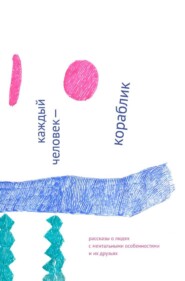По всем вопросам обращайтесь на: info@litportal.ru
(©) 2003-2025.
✖
Best Russian Short Stories
Настройки чтения
Размер шрифта
Высота строк
Поля
He turned away, left the shore, and went on further without looking before him. He forgot time and space and his own ego, filled only with the afflicting thought of Socrates!
"Yesterday he still was, yesterday his mild words still could be heard. How is it possible that to-day he no longer is? O night, O giant mountain shrouded in mist, O heaving sea moved by your own life, O restless winds that carry the breath of an immeasurable world on your wings, O starry vault flecked with flying clouds – take me to you, disclose to me the mystery of this death, if it is revealed to you! And if ye know not, then grant my ignorant soul your own lofty indifference. Remove from me these torturing questions. I no longer have strength to carry them in my bosom without an answer, without even the hope of an answer. For who shall answer them, now that the lips of Socrates are sealed in eternal silence, and eternal darkness is laid upon his lids?"
Thus Ctesippus cried out to the sea and the mountains, and to the dark night, which followed its invariable course, ceaselessly, invisibly, over the slumbering world. Many hours passed before Ctesippus glanced up and saw whither his steps had unconsciously led him. A dark horror seized his soul as he looked about him.
III
It seemed as if the unknown gods of eternal night had heard his impious prayer. Ctesippus looked about, without being able to recognise the place where he was. The lights of the city had long been extinguished by the darkness. The roaring of the sea had died away in the distance; his anxious soul had even lost the recollection of having heard it. No single sound – no mournful cry of nocturnal bird, nor whirr of wings, nor rustling of trees, nor murmur of a merry stream – broke the deep silence. Only the blind will-o'-the-wisps flickered here and there over rocks, and sheet-lightning, unaccompanied by any sound, flared up and died down against crag-peaks. This brief illumination merely emphasised the darkness; and the dead light disclosed the outlines of dead deserts crossed by gorges like crawling serpents, and rising into rocky heights in a wild chaos.
All the joyous gods that haunt green groves, purling brooks, and mountain valleys seemed to have fled forever from these deserts. Pan alone, the great and mysterious Pan, was hiding somewhere nearby in the chaos of nature, and with mocking glance seemed to be pursuing the tiny ant that a short time before had blasphemously asked to know the secret of the world and of death. Dark, senseless horror overwhelmed the soul of Ctesippus. It is thus that the sea in stormy floodtide overwhelms a rock on the shore.
Was it a dream, was it reality, or was it the revelation of the unknown divinity? Ctesippus felt that in an instant he would step across the threshold of life, and that his soul would melt into an ocean of unending, inconceivable horror like a drop of rain in the waves of the grey sea on a dark and stormy night. But at this moment he suddenly heard voices that seemed familiar to him, and in the glare of the sheet-lightning his eyes recognised human figures.
IV
On a rocky slope sat a man in deep despair. He had thrown a cloak over his head and was bowed to the ground. Another figure approached him softly, cautiously climbing upward and carefully feeling every step. The first man uncovered his face and exclaimed:
"Is that you I just now saw, my good Socrates? Is that you passing by me in this cheerless place? I have already spent many hours here without knowing when day will relieve the night. I have been waiting in vain for the dawn."
"Yes, I am Socrates, my friend, and you, are you not Elpidias who died three days before me?"
"Yes, I am Elpidias, formerly the richest tanner in Athens, now the most miserable of slaves. For the first time I understand the words of the poet: 'Better to be a slave in this world than a ruler in gloomy Hades.'"
"My friend, if it is disagreeable for you where you are, why don't you move to another spot?"
"O Socrates, I marvel at you – how dare you wander about in this cheerless gloom? I – I sit here overcome with grief and bemoan the joys of a fleeting life."
"Friend Elpidias, like you, I, too, was plunged in this gloom when the light of earthly life was removed from my eyes. But an inner voice told me: 'Tread this new path without hesitation', and I went."
"But whither do you go, O son of Sophroniscus? Here there is no way, no path, not even a ray of light; nothing but a chaos of rocks, mist, and gloom."
"True. But, my Elpidias, since you are aware of this sad truth, have you not asked yourself what is the most distressing thing in your present situation?"
"Undoubtedly the dismal darkness."
"Then one should seek for light. Perchance you will find here the great law – that mortals must in darkness seek the source of life. Do you not think it is better so to seek than to remain sitting in one spot? I think it is, therefore I keep walking. Farewell!"
"Oh, good Socrates, abandon me not! You go with sure steps through the pathless chaos in Hades. Hold out to me but a fold of your mantle – "
"If you think it is better for you, too, then follow me, friend Elpidias."
And the two shades walked on, while the soul of Ctesippus, released by sleep from its mortal envelop, flew after them, greedily absorbing the tones of the clear Socratic speech.
"Are you here, good Socrates?" the voice of the Athenian again was heard. "Why are you silent? Converse shortens the way, and I swear, by Hercules, never did I have to traverse such a horrid way."
"Put questions, friend Elpidias! The question of one who seeks knowledge brings forth answers and produces conversation."
Elpidias maintained silence for a moment, and then, after he had collected his thoughts, asked:
"Yes, this is what I wanted to say – tell me, my poor Socrates, did they at least give you a good burial?"
"I must confess, friend Elpidias, I cannot satisfy your curiosity."
"I understand, my poor Socrates, it doesn't help you cut a figure. Now with me it was so different! Oh, how they buried me, how magnificently they buried me, my poor fellow-Wanderer! I still think with great pleasure of those lovely moments after my death. First they washed me and sprinkled me with well-smelling balsam. Then my faithful Larissa dressed me in garments of the finest weave. The best mourning-women of the city tore their hair from their heads because they had been promised good pay, and in the family vault they placed an amphora – a crater with beautiful, decorated handles of bronze, and, besides, a vial. – "
"Stay, friend Elpidias. I am convinced that the faithful Larissa converted her love into several minas. Yet – "
"Exactly ten minas and four drachmas, not counting the drinks for the guests. I hardly think that the richest tanner can come before the souls of his ancestors and boast of such respect on the part of the living."
"Friend Elpidias, don't you think that money would have been of more use to the poor people who are still alive in Athens than to you at this moment?"
"Admit, Socrates, you are speaking in envy," responded Elpidias, pained. "I am sorry for you, unfortunate Socrates, although, between ourselves, you really deserved your fate. I myself in the family circle said more than once that an end ought to be put to your impious doings, because – "
"Stay, friend, I thought you wanted to draw a conclusion, and I fear you are straying from the straight path. Tell me, my good friend, whither does your wavering thought tend?"
"I wanted to say that in my goodness I am sorry for you. A month ago I myself spoke against you in the assembly, but truly none of us who shouted so loud wanted such a great ill to befall you. Believe me, now I am all the sorrier for you, unhappy philosopher!"
"I thank you. But tell me, my friend, do you perceive a brightness before your eyes?"
"No, on the contrary such darkness lies before me that I must ask myself whether this is not the misty region of Orcus."
"This way, therefore, is just as dark for you as for me?"
"Quite right."
"If I am not mistaken, you are even holding on to the folds of my cloak?"
"Also true."
"Then we are in the same position? You see your ancestors are not hastening to rejoice in the tale of your pompous burial. Where is the difference between us, my good friend?"
"But, Socrates, have the gods enveloped your reason in such obscurity that the difference is not clear to you?"
"Friend, if your situation is clearer to you, then give me your hand and lead me, for I swear, by the dog, you let me go ahead in this darkness."
"Cease your scoffing, Socrates! Do not make sport, and do not compare yourself, your godless self, with a man who died in his own bed – ".
"Ah, I believe I am beginning to understand you. But tell me, Elpidias, do you hope ever again to rejoice in your bed?"
"Oh, I think not."
"And was there ever a time when you did not sleep in it?"
"Yes. That was before I bought goods from Agesilaus at half their value. You see, that Agesilaus is really a deep-dyed rogue – "
"Ah, never mind about Agesilaus! Perhaps he is getting them back, from your widow at a quarter their value. Then wasn't I right when I said that you were in possession of your bed only part of the time?"
"Yes, you were right."

















